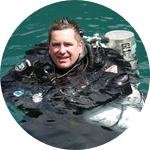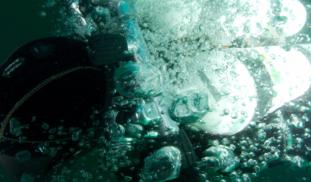95
0
0
Like?
Please wait...
About This Project
SCUBA diving is a recreational activity with an inherent risk; the underwater world is a hostile environment. Most incident research has focussed on what happened, not why. This research aims to develop a causality model & taxonomy to look at the role of human factors in diving incidents, from the divers and the mistakes they make, to the role of supervisors and organisations. Whilst the results are unlikely to be a surprise, they will be unique.

Browse Other Projects on Experiment
Related Projects
How can ultrasonic wearables be most useful for humans?
Like bats and dolphins, some blind humans are able to echolocate — using acoustic reflections to sense...
The Panic Button!: A Biofeedback App for Panic Attacks
Panic attacks are intense episodes of discomfort, fear, and feelings of helplessness experienced by millions...

